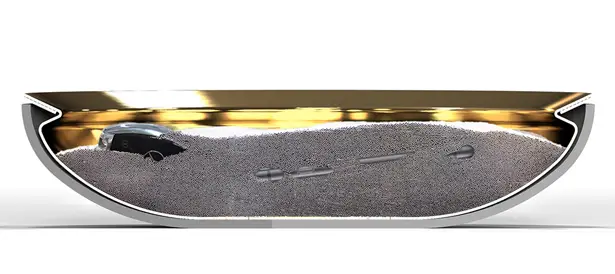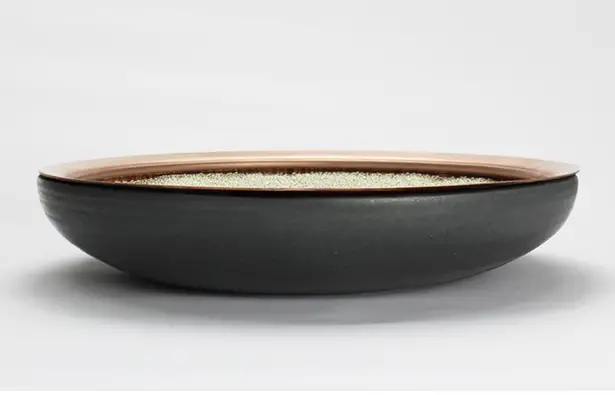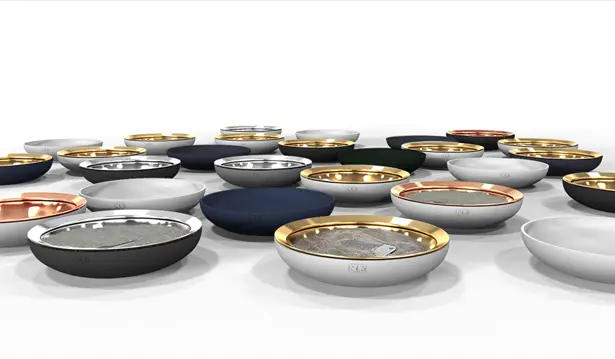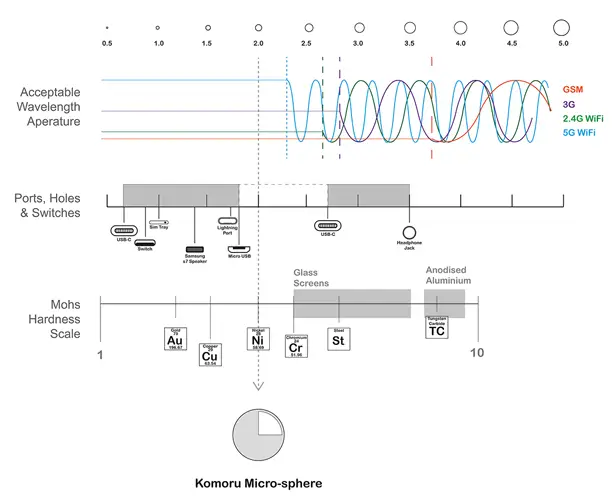Komoru is a vessel that creates a signal “deadzone” using a malleable faraday cage. This means that any digital device, including smartphones, inserted into Komoru cannot send or receive data. Drawing from the concept of the traditional Japanese Zen Garden, Komoru (meaning: to seclude one’s self) creates a space to decrease stress and anxiety by burying the devices that cause them. Yes, you can simply turn off your phone or change it to “flight” mode, but where’s the fun in that.
Recent studies have shown it’s a natural, human need to crave social interaction, but the way we fulfill that desire via smartphones can be detrimental to our mental health with so many addictive social media platforms being easily accessed. Our lives have become intrinsically linked with our smartphones, making it impossible for us to ever truly switch off. This addiction to digital society has seemingly interrupted our understanding of face-to-face interactions and the art of real conversation. Komoru offers a solution to this modern-day problem.


A Faraday cage is used to block varying electromagnetic fields by cancelling out the energy through a conductive surface. Successful blocking, or attenuation, of electromagnetic signals relies on the conductivity of the enclosing surface and the size of any holes or apertures within the enclosing surface. This has typically been achieved with a solid metal surface or mesh enclosure. However, Komoru uses specially designed microspheres to form a pliable structure. Thus, allowing digital devices to be simply buried without the need to open or close any compartment, allowing disconnection in a single, therapeutic motion.
The composite microspheres (the product of an ongoing Cohda R&D project) are coated with a highly conductive, non-magnetic layer of nickel. This means the resultant microspheres are a third of the weight of typical steel ball bearings and lower on the Mohs hardness scale, making them incapable of scratching or damaging a user’s phone. The optimum radius of the spheres has been identified using a comparison of the different buttons, ports and access holes featured in the top 20 smartphones, eliminating potential interference. Whilst there is a slight increase in battery usage caused by the phone searching for signal when immersed in Komoru, this is far outweighed by the battery savings in not using the smartphone.

Housing the all-important spheres is a hand-thrown stoneware bowl, which, in-turn houses a hand spun metal bowl with a bespoke lip, effectively retaining the microspheres. As society progresses towards a constantly connected, data-driven environment, Komoru offers a place to switch off and seclude oneself from the digital world.

Komoru is a beautiful solution to a relevant issue facing all of us in some form or another, whether it’s a family trying to gain back an interactive mealtime, a couple wanting to spend time with each other rather than their screens, or a person who just wants to experience a complete sense of now.

Tuvie received “Komoru” project from our ‘Submit A Design‘ feature, where we welcome our readers to submit their design/concept for publication.







